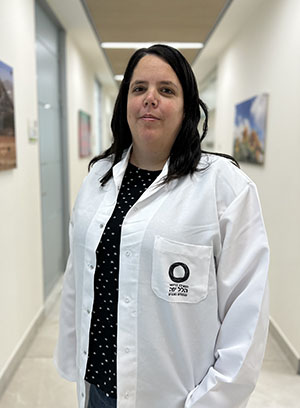|

Help them be prepared. Ronit Melk Nofim |
The school year will begin in just a few days, and it’s back to school for millions of children. There's lots of excitement, especially for the children starting first grade. Many of them may find it somewhat difficult planning and organizing their learning environment and may feel overwhelmed and confused when doing an assignment.
“There are things that will help them come to first grade more prepared and confident,” said Ronit Melk Nofim, an occupational therapist at Hillel Yaffe.
Practicing skills - during summer break, you can practice skills with the children in a pleasant environment that embraces play, things like organizing their backpack, taking out and putting their notebooks back in their back and removing various objects from the pencil case. Practicing will allow them to become familiar with their things before the initial “baptism of fire” during the school year. You can teach and practice identifying various notebooks (lines or graph paper) and learning to tell the difference between notebooks, workbooks or books. Additionally, it's a good idea to prepare a list of objects necessary to prepare their backpacks and pencil cases, where they can check off the things they have packed.
Learning and practicing right and left - it’s important for children to know their directions (right and left) so that they can begin learning to write and knowing how to distinguish between them when writing letters and numbers. By practicing, they will better understand directions for orientation in the classroom and in the school.
Driving to school and an initial visit to the school environment - to enable children to identify and learn the distance and direction and to be emotionally available to start the school year because they will already be familiar with the school environment. This preparation will help provide the clearest, most detailed and tangible information possible about the new learning environment.
Preliminary meeting with children in their new class - encouraging intimate meetings between the children so that they can get to know each other better. In addition to a familiar environment, meeting children they know alleviates their fear at the beginning of the school year.
Physical activity - games that involve movement and physical activity (dance, tag, red light green light) allow children to practice motor skills that are important for how they function. Additionally, the games help them relieve stress and anxiety, develop body image and fit in better socially.
Activities at home - activities at home allow children to practice fine motor skills in preparation for first grade and also encourage independence, development of a positive self-image and self-efficacy. For example, using cutlery to prepare food, using tools, squeezing out a rag, folding laundry and arts and crafts projects.
In addition to emotional, social, motor and cognitive preparation for starting first grade, the way parents relate to the transition affects the way the child adapts to the new educational setting. Try to talk to them, understand their weaknesses and any difficulties they may have and “soften” the change by ensuring they feel more confident and calmer. Remember, learning takes place every single day, whether intentionally or not, through play or everyday activities that are part of the routine at home.
Here’s to a great school year!











.jpg?BannerID=39)

